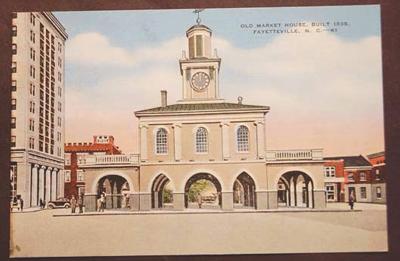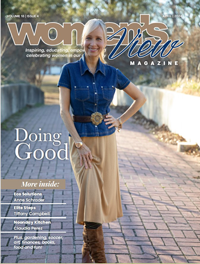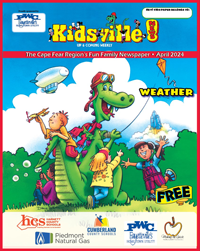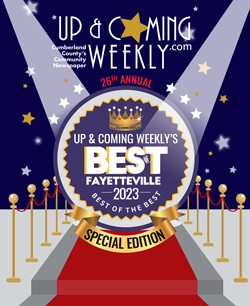Tweets from the Past
My grandmother died many years ago, and as is the usual course of such things, it fell to my father and his sister to clean out her large, rambling Greek revival house on Green Street in downtown Fayetteville. The house was complete with a barn behind it — yes, a dilapidated but very real barn. Both buildings were chock-a-block full of furniture, generations of other belongings and rife with memories for Daddy and Aunt Mimi who grew up there.
I was 15 at the time and have very little recollection of their shared task except that some of my grandmother’s possessions were duly absorbed into our household. Two of those were large, battered steamer trucks which landed in a storage room behind our garage. They resided there until the day, years later, when my sister and I got curious enough to wonder what was inside them since we never heard of our grandmother steaming anywhere.
Postcards.
Thousands upon thousands of postcards.
Each bore a stamp that had been hand-cancelled. Each was hand-addressed to someone, most often my grandmother or her sister, and each had a short handwritten message. “Best to Uncle Charles.” “Fine weather for the last three days.” “Love to all.” “Cousin Lucy’s baby arrived Monday — a lovely daughter.” Some came from people we had heard of, some from others we had not, and some were simply unsigned. Apparently my grandmother knew who sent them anyway.
The flip side of the postcards had photographs or drawings of the places from which they came and, occasionally, just some image that must have seemed appealing at the time. They came from all over, places far away and, remarkably, very near
.It seemed to my sister and me that if someone “motored,” as they said in those days, from here to Raeford, he sent a postcard to commemoratethe trip.
We spent happy hours going through our grandmother’s mail, which she had obviously treasured enough to save, and trying to fi gure out who had generated all these postcards.
You can imagine, then, my recent delight when I literally happened upon a little paperback entitled Fayetteville and Fort Bragg in Vintage Postcards on the discount shelf at Sam’s Club, of all places. It was published a decade ago by the Cumberland County Historical Society with an introduction by local historian Roy Parker, whose own collected postcards grace many of the pages.
The book is a look back at our community in days past and it is a treasure.
In postcards, we see the Cape Fear River in the various and damaging floods we no longer have to endure. We see some local buildings that looked much the same a century ago as they do today — the Market House, downtown churches, and a bit later, the Veteran’s Hospital. Other images are startling — a group of local citizens lounging and socializing on Hay Street on a parade day in 1911. The men wear white suits and the women are protected by parasols, and not the little ones that come in fruity drinks. The wheels of a car are decorated to look like clock faces, an early version of rims, I suppose.
There are pictures of Highsmith and Pittman Hospitals, where many local Baby Boomers arrived on the scene. We see soldiers and their barracks during World War II and Jeeps being readied for air drops into Korea. We see restaurants like Steve’s Place, established by Greek immigrants who made Fayetteville their home, and lodging establishments like the Prince Charles before the stucco fell off. We see the sports teams from the long-gone Donaldson Military Academy and the still with us Orange Street School which will celebrate its centennial anniversary in 2015.
For anyone who has been in our community for a while, this little book is a veritable blast from the past.
It got me to pondering as well that we human beings have always wanted to communicate with each other, and that postcards were once a popular way to do just that.
Before we had mail, though, we wrote and drew on the walls of our cave abodes. We yodeled. We sent smoke signals and dispatched carrier pigeons. We left twigs as directions for those coming behind. In short, we have always found ways to keep in touch.
My grandmother’s postcard collection was certainly evidence of that but it was more as well. It gives us a glimpse of life in one southern family in the early days of the 20th century, and the Historical Society’s postcard book shows us our own unique community in earlier moments of time.
Postcards were to my grandmother’s generation what Facebook postings, texts, and the like are to many of us today.
Just think of them as Tweets from the mists of history.
Photo: It seemed to my sister and me that if someone “motored,” as they said in those days, from here to Raeford, he sent a postcard to commemorate the trip.

 How to resolve AdBlock issue?
How to resolve AdBlock issue? 









